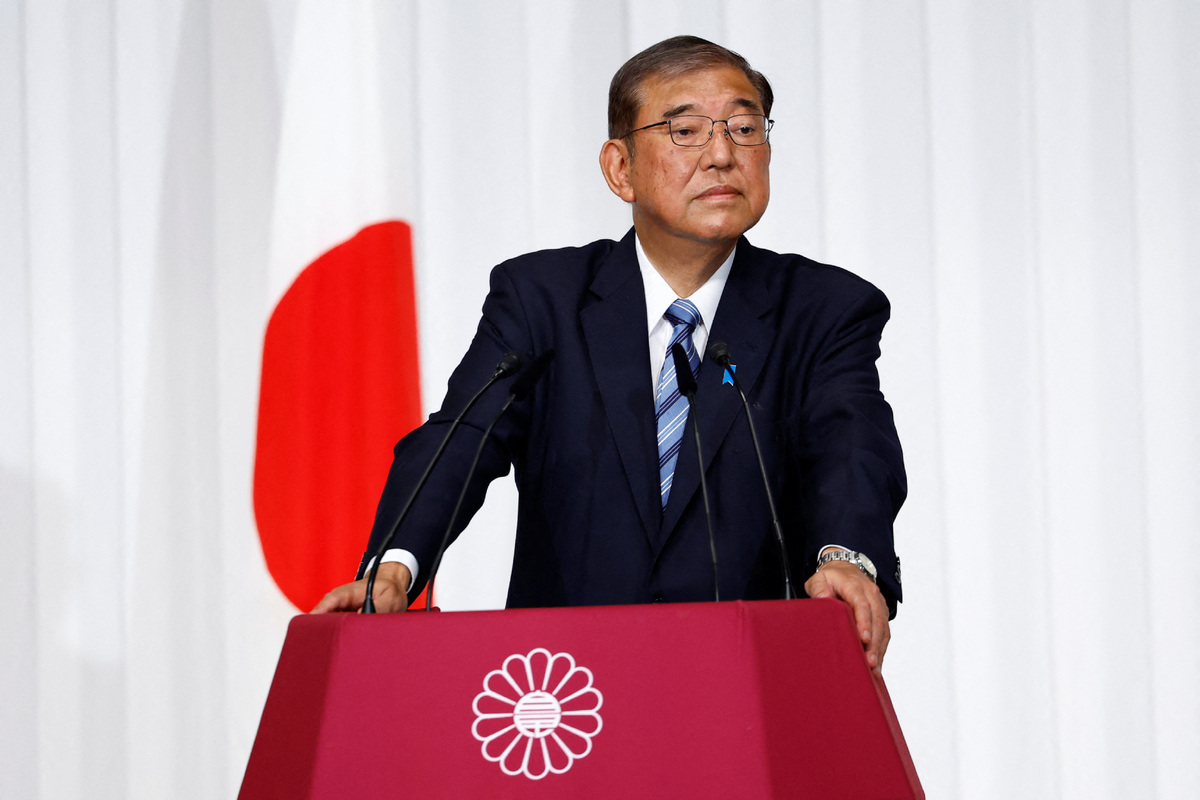Support for Ishiba's Cabinet dips post-election
Phone survey finds 53 percent of those polled want a change in government


The approval rating for Japanese Prime Minister Shigeru Ishiba's Cabinet dropped significantly from 50.7 percent before the lower house election to 32.1 percent afterward, according to a Kyodo News survey released on Tuesday.
In the nationwide telephone survey conducted between Monday and Tuesday, 53 percent of respondents said they do not want the ruling coalition of the Liberal Democratic Party and its partner, Komeito, to remain in power after their election loss, while 38.4 percent indicated that they still support the coalition's leadership.
When asked about their preferred government structure, 31.5 percent of respondents favored "a new framework through political realignment", followed by "a government centered around the Constitutional Democratic Party of Japan and other opposition parties" at 24.6 percent. Only 18.1 percent supported a minority government led by the LDP and Komeito.
According to the election results released on Monday, the ruling coalition held a combined total of 215 seats in the 465-member House of Representatives. The LDP's seats dropped sharply from 247 to 191, while Komeito's representation decreased from 32 seats to 24.
Ishiba has indicated that he will remain as prime minister and continue to lead the coalition government. The LDP announced that it has no current plans to expand the coalition, instead aiming to collaborate with opposition parties on a policy-by-policy basis.
The LDP is reaching out to opposition parties to bolster support for Ishiba's election as prime minister during a special Diet session.
The largest opposition party, the Constitutional Democratic Party of Japan, which increased its seats from 98 to 148, is asking other parties to support its leader, Yoshihiko Noda, for the prime minister's position.
Meanwhile, the Democratic Party for the People expanded its seats from seven to 28. DPP leader Yuichiro Tamaki said officials across party levels have been in talks with their counterparts in both the LDP and other opposition parties regarding potential collaboration.
The severe loss for the Ishiba administration in the Oct 27 general election reveals the public's deep-seated mistrust, exacerbated by the LDP's slush fund scandal, said Ukeru Magosaki, co-representative of the Association for Inheriting and Propagating the Murayama Statement, a civic group in Japan.
The scandal involves some LDP members who underreported income from fundraising events.
"People are struggling in their daily lives, yet there's a profound distrust toward a system that uses millions in public and semi-public funds with apparent ease," he explained.
"The slush fund scandal is a key reason, but it's just a surface-level issue. At the heart of the problem are rising prices and deteriorating living standards affecting many citizens, along with the perception that LDP policies are increasingly disconnected from the public's interests."
Magosaki, a former senior official with Japan's Ministry of Foreign Affairs, emphasized the need for a new framework beyond the current LDP-Komeito coalition, adding that it will be difficult for the LDP to drive policies alone with its lost majority.
He also noted that in a coalition, each party's agendas become more pronounced, complicating consensus-building and making new agreements harder to achieve.

































